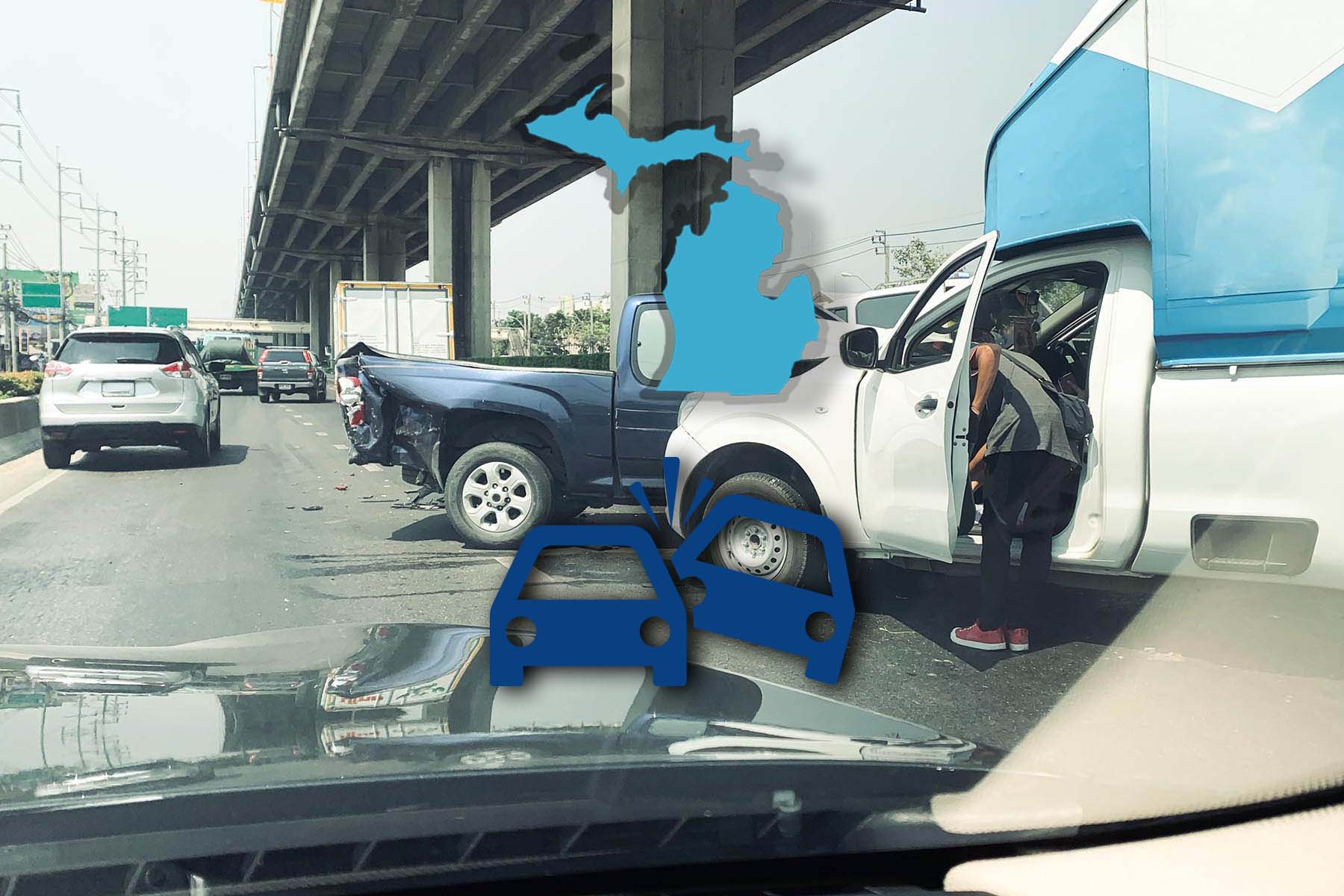
Michigan hit and run laws: What happens if someone does a hit and run?
- Michigan hit and run laws: What happens if someone does a hit and run?
- Michigan hit and run laws explained
- Michigan hit and run laws: Misdemeanor offenses
- Michigan hit and run laws: Felony offenses
- Michigan hit and run laws: What is the penalty for leaving the scene of an accident?
- How is fault determined in Michigan?
- What is the statute of limitations on accidents in Michigan?
- Michigan hit and run laws: Defenses
Under section 257.617, Michigan hit and run laws, leaving the scene of an accident without fulfilling what the law requires of you is a criminal offense punishable by up to five years in prison and license suspension or revocation.
Quick take: Michigan hit and run laws
- Leaving the scene of an accident that results in death or injury is a felony in Michigan.
- A jury decides the at fault party, thus you should not admit fault.
- You have three years to file a wrongful death, negligence, or injury claim.
- Your share/percentage of responsibility for the accident reduces the damages you may collect.
References:
- Section, 257.617/a: accident resulting in serious impairment of body function or death.
- Section 257.618 accidents, damage to vehicles; stopping required, reporting to police.
Michigan hit and run laws explained
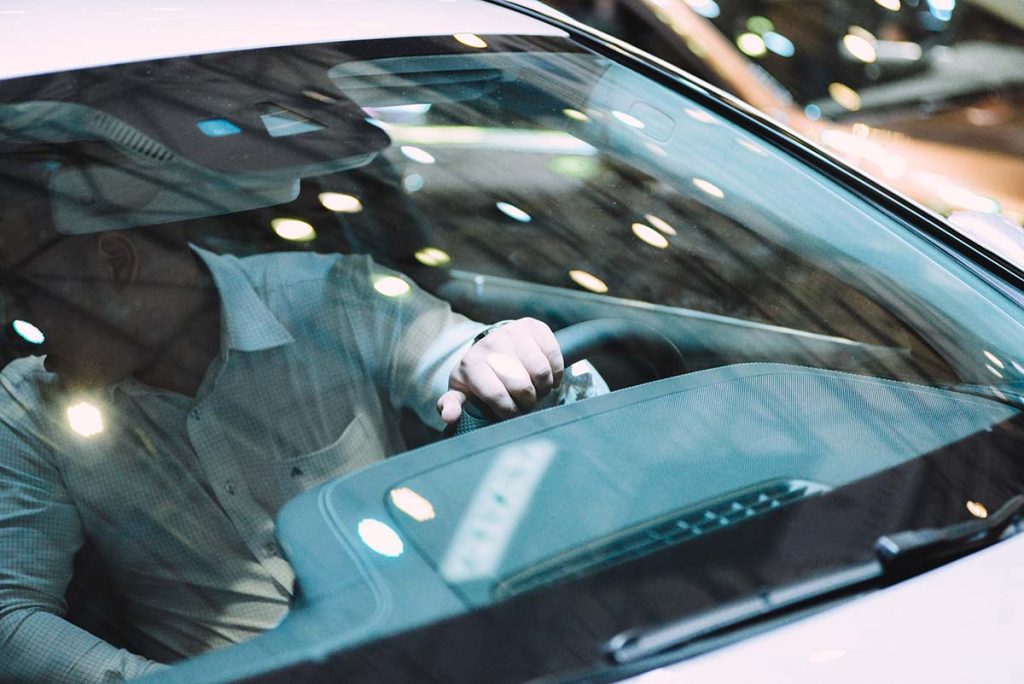
How does an accident in Michigan become a criminal offense?
Section 257.617, Michigan hit and run law, states that after an accident, you are legally obligated to stop your vehicle at the scene and fulfill the requirements of section 619. Failure to fulfill said requirements may result in criminal prosecution upon arrest. The crime could be a misdemeanor or felony, depending on the facts presented. Misdemeanor crimes include damage to a vehicle or property, whereas felony charges include vehicular homicide, manslaughter, causing grievous injury, and so on.
The punishment includes both criminal, administrative, and civil charges.
What are your legal obligations at the scene of an accident?
Section 257.619 “accidents; duties of driver” requires that if you are involved in an accident, you must:
- Immediately stop your vehicle at the scene or close to it.
- Give your name, address, and vehicle registration number to the struck person, a passenger in the struck vehicle, or a law enforcement officer.
- Upon request, you must exhibit your driver’s license to the person struck or any occupant of the struck vehicle.
- Render reasonable assistance to anyone who needs it.
- Immediately report the accident to the nearest or most convenient law enforcement agency.
- Do not obstruct traffic more than is necessary.
- You may move the vehicle if there is a reasonable belief that remaining at the scene will result in further harm.
Fulfilling the requirements above may help prevent criminal charges if you were sober at the time of the accident or if the striking was not intentional. Remember, deliberate hit and run resulting in death (such as in road rage or other vehicular homicide cases) is murder if the prosecutors can prove it. It may also lead to assault charges.
Furthermore, the victim may sue for negligence.
Michigan hit and run laws: Misdemeanor offenses
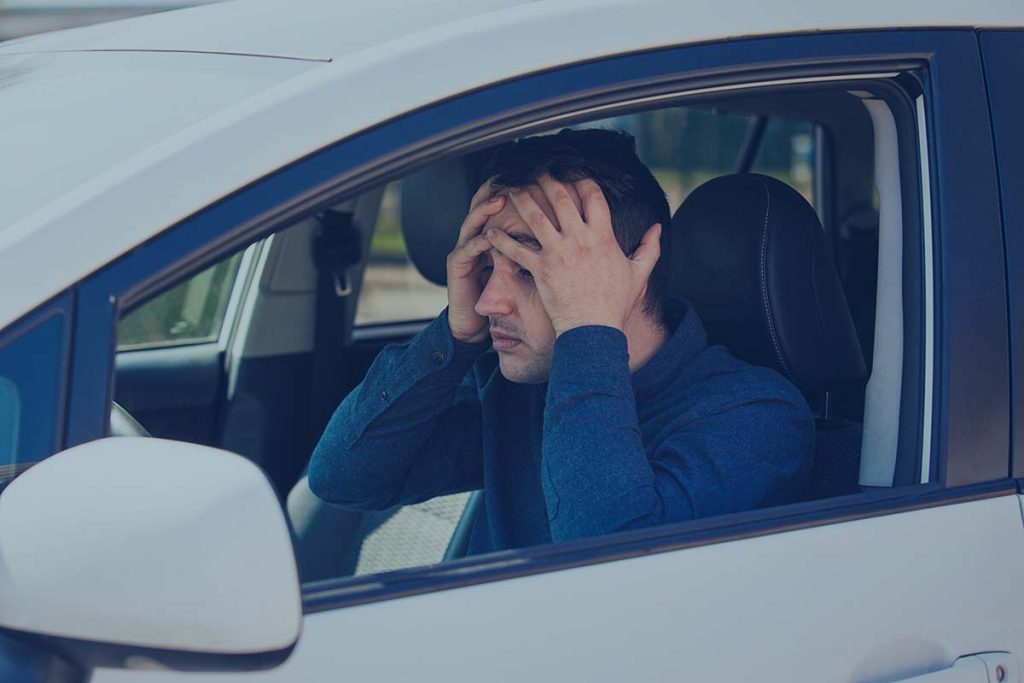
In Michigan, if you know that or have reason to believe that you have been involved in an accident, you have a legal obligation to fulfill the requirements above. What happens if you do not fulfill the requirements?
According to section 617a of Michigan’s hit and run laws for a first offence that results in injury, fleeing the scene is a misdemeanor punishable by a fine of not more than $1000 and imprisonment for up to one year.
Note: Section 257.319 requires suspension of the accused’s driving license upon conviction. Failure to stop at an accident that results in injury may result in license suspension for up to one year. Malicious destruction of property will result in license suspension for up to 30 days.
What is a reportable accident in Michigan?
Note: Any accident that results in injury, death, or damage surpassing $1000 is a “reportable accident” in Michigan.
That said.
As mentioned, Michigan hit and run laws require that you immediately notify the nearest law enforcement agency whenever you are involved in an accident. At the scene, call the police. After that, you have three days to report any accident that results in injury, death, or property damage in person at the nearest police station.
Failure to report an accident within the set time is a misdemeanor punishable by a maximum fine of $100 and up to 90 days in jail under Michigan hit and run law section 257.618.
What if you hit a parked vehicle in Michigan?
If the damage surpasses $1000, you must report the accident at the nearest police station if you hit a parked vehicle and leave the scene without giving the vehicle owner your name, address, insurance information, and contact information. You are guilty of a misdemeanor punishable by up to 90 days in jail and a maximum fine of $100.
What if you cannot find the driver?
If you are involved in a “reportable accident”, you must make a reasonable effort to locate the vehicle owner. If you cannot find the owner and there is no law enforcement agent at the scene. You may leave a note on a conspicuous section of the struck vehicle.
To avoid criminal prosecution the note should contain: Your name, address, vehicle plate number, and license plate number. That is according to section 257.619 of Michigan’s hit and run laws.
Michigan hit and run laws: Felony offenses
After an accident in Michigan, you may only move the vehicle if you have a reasonable belief that if you do not move the vehicle, more harm will result. That means -do not move the vehicle unless it is necessary, or if not instructed by law enforcement or emergency workers if the accident results in serious injury or death.
Note – that if you leave the scene of an accident that results in death or serious injuries without fulfilling the requirements above, you are guilty of a felony punishable by up to five years in prison and a fine. What if you do not report the accident or are at fault? Subsection 3 of the statute reads:
“If the individual violates subsection (1) following an accident caused by that individual and the accident results in the death of another individual, the individual is guilty of a felony punishable by imprisonment for not more than 15 years or a fine of not more than $10,000.00, or both.”
Note: Section (1) of 257.617 states that if you know or have reason to know that you have been involved in an accident, you must immediately stop the vehicle, report the incident to the police and render reasonable assistance to anyone who needs it.
DUI Hit and run in Michigan
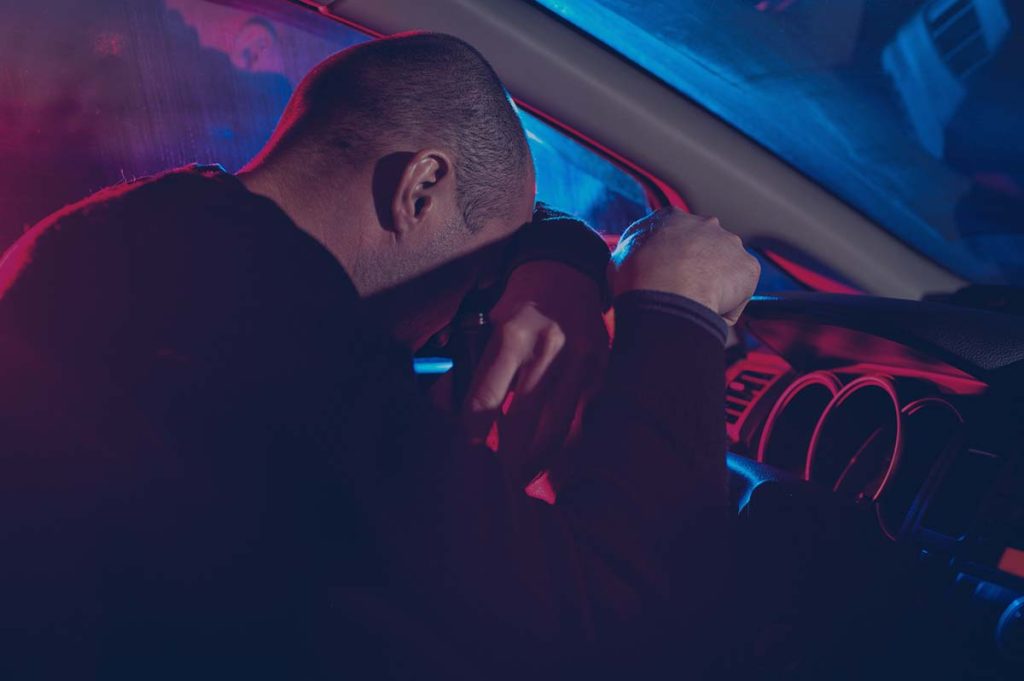
In Michigan, a DUI alone carries a fine of up to $500. Additionally, you must pay a “driver responsibility” fee of $2000 for up to two years, the court may order incarceration for up to 93 days, and the crime will go on your record. On top of that, you will get six points on your driver’s license, license suspension, and/or community service.
What happens if you hit a person or property while driving under the influence in Michigan?
If the DUI accident results in death, you are guilty of a felony punishable by up to 15 years in prison, plus a maximum fine of $10000. A DUI that results in serious bodily injury is a felony punishable by up to five years in prison plus a maximum fine of $5000.
Note: both crimes result in license suspension or revocation upon conviction. Furthermore, a single set of facts may result in multiple charges. We recommend:
- Contact your lawyer immediately.
- Do not admit fault.
- Submit to drug or alcohol testing
Note: refusing drug testing is a civil infraction in Michigan. Some lawyers recommend it, and some do not. Therefore, we recommend contacting your attorney immediately after an accident to avoid saying or doing anything that may lead to further criminal charges.
Tip: If you take the drug test, your attorney may challenge the trustworthiness of the device used.
Michigan hit and run laws: What is the penalty for leaving the scene of an accident?
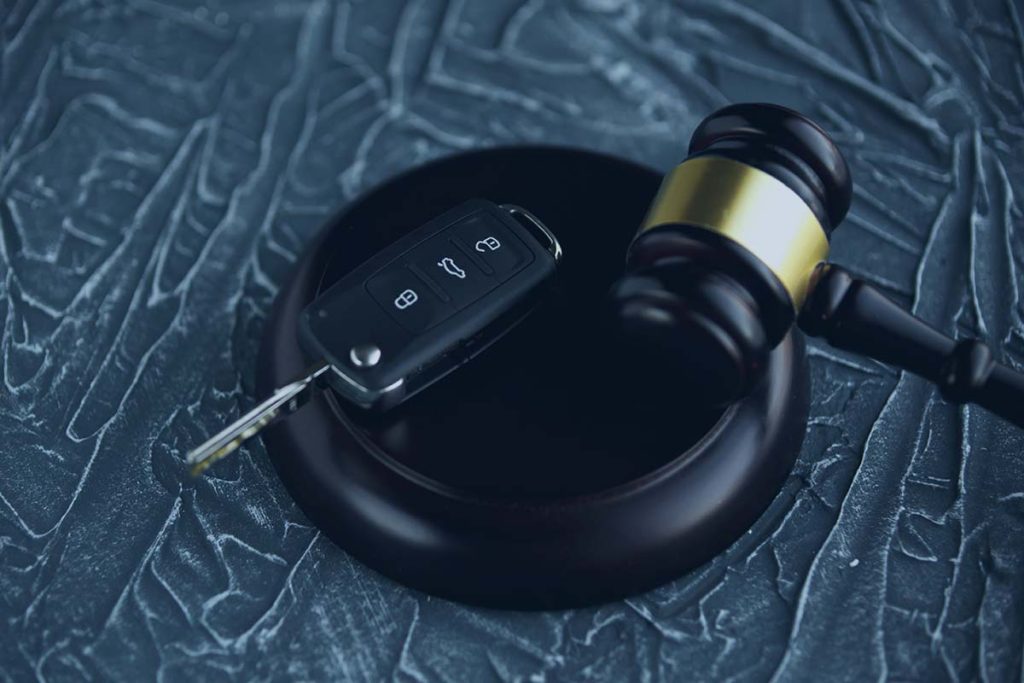
- Hit and run, property damage/not reporting a reportable accident: misdemeanor, punishable by up to 93 days in jail and a maximum fine of $100 for a first offense.
- Hit and run, injury: misdemeanor, punishable by a maximum fine of $1000 and a prison sentence of up to one year.
- Severe bodily injury or death: felony, punishable by up to five years in prison and a maximum fine of $5000. Or 15 years in prison and a fine of up to $10000 for the at-fault party.
- DUI hit and run, death, or serious injury: felony, punishable by up to 15 years in prison and a maximum fine of $5000.
Note: For a second or subsequent offense, you may qualify for enhanced punishment. Also, upon conviction for any offenses above, Michigan hit and run laws require license suspension.
Michigan hit and run laws: Administrative and civil penalties
If you fulfill all the requirements above, you may avoid criminal charges. However, the victim or property owner has the right to take civil action, meaning you may sue the driver to recover medical bills, pain and suffering, loss of income, and so on. Remember, the facts presented determine the claim you may file. We recommend consulting with an attorney and acting before the statute of limitations expires.
Additionally, the court may impose punitive damages on the accused.
How is fault determined in Michigan?
Michigan follows a “comparative fault rule” (section 600.2959) that lowers the amount you may recover based on your share of fault. Remember, It is up to a jury and investigators to determine your share of fault. Meaning, it is in your best interest not to admit fault at the scene of an accident.
The statute reads:
“In an action based on tort or another legal theory seeking damages for personal injury, property damage, or wrongful death, the court shall reduce the damages by the percentage of comparative fault of the person upon whose injury or death the damages are based as provided in section 6306 or 6306a, as applicable. If that person’s percentage of fault is greater than the aggregate fault of the other person or persons, whether or not parties to the action, the court shall reduce economic damages by the percentage of comparative fault of the person upon whose injury or death the damages are based as provided in section 6306 or 6306a, as applicable, and noneconomic damages shall not be awarded.”
What is the statute of limitations on accidents in Michigan?
In Michigan, you have three years starting from the date of the accident to file a lawsuit. The same period applies to wrongful death and negligence claims. If the victim dies, the clock starts at the time of death.
Michigan hit and run laws: Defenses
Hit and run defenses are circumstantial. Meaning they vary from case to case. However, the most used defenses in the state include:
- You were unaware of your involvement in an accident.
- The victim suffered no injuries or property.
- Staying the scene would result in more harm, or you feared for your safety.
- Mistaken identity -or you were not the individual driving the vehicle at the time of the incident.
Other Michigan Laws